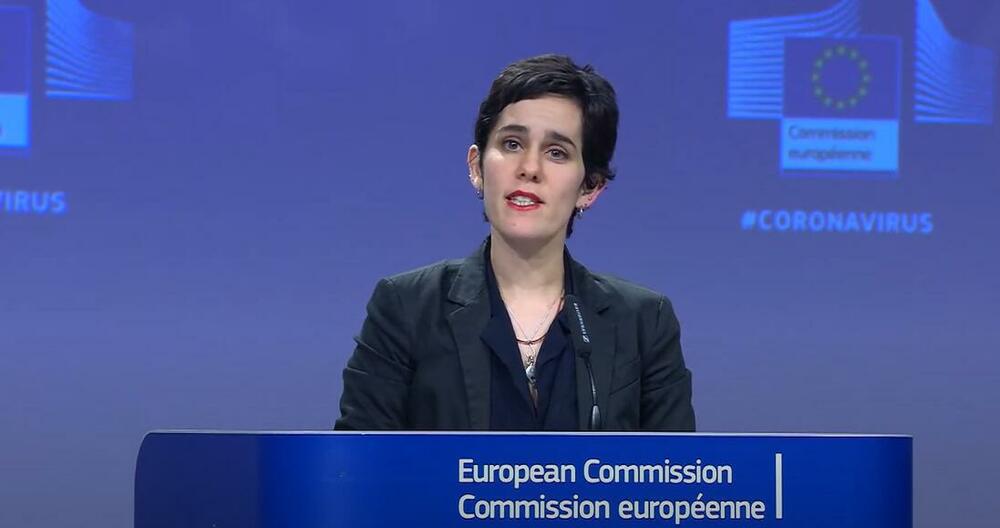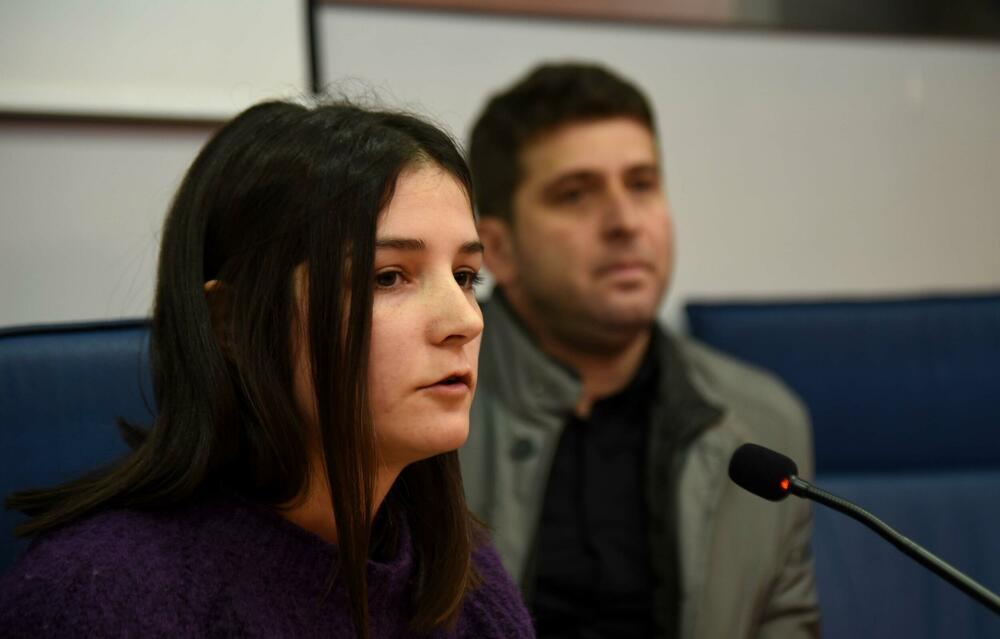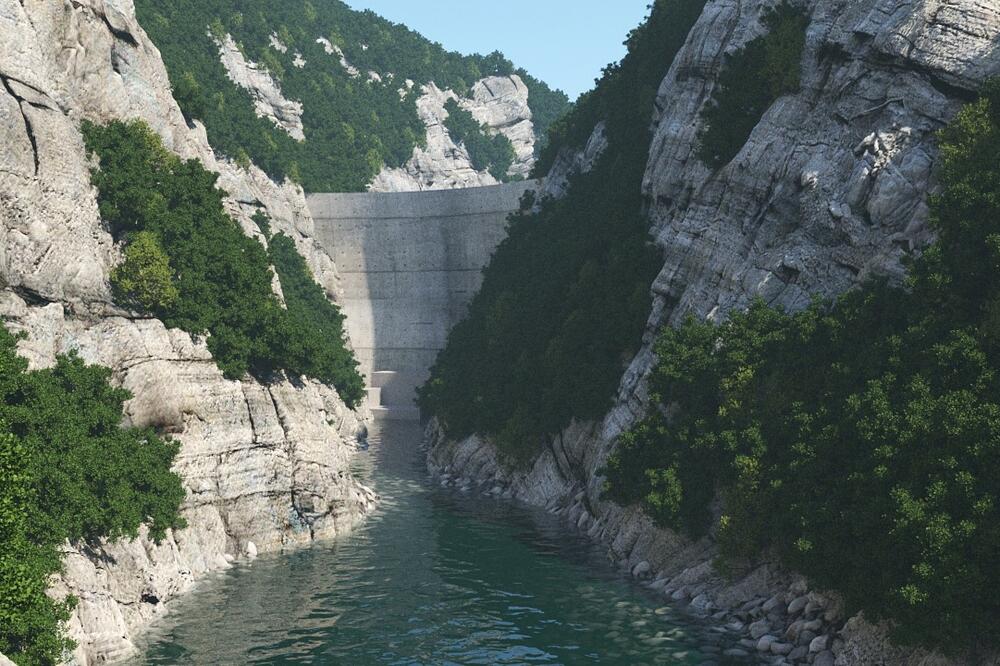The Government of Montenegro made a decision in the technical mandate to grant a thirty-year concession for the Komarnica hydroelectric power plant (HE). This decision would probably not have been possible if Montenegro had a Law on Government. The European Commission announced that they will monitor this project, which a large part of the public considers controversial.
Spokesperson for the European Commission Ana Pisonero she said for Center for Investigative Journalism of Montenegro (CIN-CG) that the technical government "is expected to ensure the continuation of business in Montenegro, with full respect for democratic standards and the Montenegrin legal framework".
"Given that the construction of a hydroelectric power plant is an important energy and environmental issue, it must be carefully considered, in accordance with the applicable national regulations in Montenegro, as well as the international obligations of the state, including those arising from the process of accession to the European Union," Pisonero said.
And in the last annual report for Montenegro, the EC emphasizes that it is "of essential importance that the development of new projects, especially in the matter of hydroelectric power plants, be carried out in accordance with the EU legislation on concessions, state aid and the environment".

The spokeswoman adds that the EC systematically recommends in its reports that investments must be in accordance with national and international obligations "in the field of nature protection and water management, to ensure public participation and consultation, but also to guarantee the high quality of environmental impact assessment reports, which include cumulative impacts on nature and biodiversity and to preserve and enhance the ecological value of protected areas and potential Natura 2000 sites". Pisonero added that the EU will continue to monitor the activities undertaken in this area.
The canyon of the Komarnica river was nominated for the Emerald area. Environmentalists stress that it could thus become part of the European ecological network and it would not be possible to easily delete it from the list of valuable areas just because a hydroelectric power plant is planned to be built.
Part of the "Komarnica and Dragišnica" Nature Park would also be threatened by the construction.
The construction of the HPP should cost between 260 and 290 million euros. Many, however, warn that the investment could be significantly more expensive, bearing in mind that these estimates were made before the noticeable jump in the price of construction materials that occurred in recent months.
According to announcements, the construction would last seven years, and HPP "Komarnica" would meet the needs of only seven percent of the total annual energy consumption in Montenegro.
It has not yet been decided whether the owner of the concession, Elektroprivreda Crne Gore (EPCG), will start this business independently or in partnership, most likely with Elektroprivreda Srbije (EPS).
MKI: If we want cheaper energy, we use what we have
"It is indisputable that the project cannot be carried out if consent is not obtained for the Elaboration on Environmental Impact Assessment, that is, the said consent is only one of the prerequisites for obtaining a construction permit", the Ministry of Capital Investments (MKI) told CIN-CG.
Due to the great interest, the Environmental Protection Agency (EPA) extended the duration of the public hearing on the Elaboration.
The discussion ended at the end of March, and six organizations, several individuals and the ruling Civil Movement URA sent comments and objections to the Elaborate.
The law stipulates that the Commission for Elaboration Impact Assessment can return the document to the project holder twice to make amendments and to additionally hire an expert for certain segments of the environment.
When asked by CIN-CG what are the main reasons for supporting such a project, from the department Mladen Bojanić they say that the energy sector is the carrier of Montenegro's development, especially in times of the global energy crisis.
"The transition to renewable energy sources is something that will come soon, but in order to ensure a fair and proper transition, hydropower must be one of its carriers. In addition, there is significant support from the local community. If we want to have cheap energy sources, we should use what we have and leave the decisions to professionals, of course, taking into account the highest environmental standards", the department stated.
They added that in addition to increasing the production of electricity in Montenegro, this project will contribute to the increase of the gross national product and the reduction of the foreign trade deficit.
In the response of CIN-CG, the MKI adds that "it is absolutely indisputable that the public interest is secured by granting the concession in question".
President of the Municipality of Savnik Jugoslav Jakić he told CIN-CG that they expect 1,3 million euros per year from real estate taxes, and 200.000 euros each from fees for the use of water and for submerged land. With income from new employees, he expects that amount to reach two million euros.
Daković: Only the profession has the main say
Events at the global level, economic crises and wars have shown that countries are not only faced with the preservation of territorial, but also energy independence. In this global context, it is necessary, according to the opinion of the executive director of "E3 Consulting" Milice Daković, observe the role of the energy sector of Montenegro, i.e. new projects and investments as a development opportunity in which electricity represents an export product at a time when energy is a limited resource.
The trend followed by Montenegro, like other EU countries, is towards the process of green energy transition. This implies a transition from "dirty" energy production technologies - energy from coal-fired thermal power plants such as TE Pljevlja, to investments in the field of green - renewable energy sources: solar energy, wind energy, gas, which have been implemented and are still planned to be implemented in our country. , and all in accordance with the goals of the Energy Development Strategy.
"Investments in hydro potential are also significant, as they contribute to the balance in the electricity generation sector, given the specifics of renewable energy sources. Whether it is planning the construction of a new hydroelectric power plant or a new wind farm, what I believe is necessary is not only a professional and detailed review of the economic dimensions of the project from the point of view of profitability and the economic benefits it brings, but also to review two other equally important dimensions - ecological and social, which is reflected in the future impact of the project on the environment and the population. In this context, only the profession should have the main say", said Daković.
She believes that in the future, Montenegro should take care to diversify its future energy projects (hydro, solar, wind, gas) and create a balance in energy sources (constant, peak and green) from the point of view of the needs of domestic consumption, but also of exports.
"At the same time, it is important to implement them in accordance with clearly defined standards and environmental protection measures, both during construction and in the post-construction period, in order to find a balance between economic benefits and environmental protection," she told CIN-CG.
Muk: It is questionable why it was done at the end of the mandate
The story itself about HPP "Komarnica" is several decades old, but it was brought up to date before the last parliamentary elections in August 2020. The then Minister of Economy Dragica Sekulić a few days before the election, she handed over the concession deed to the then executive director of EPCG Igor Noveljić.
Vlada Zdravka Krivokapića in the technical mandate, at the session on March 10, adopted the information on the implementation of the HPP construction project. It also accepted the Draft Concession Agreement, and MKI was tasked with conducting negotiations with EPCG with the aim of harmonizing the final text of the agreement and submitting it to the Government for consideration and acceptance within 60 days.
The concession act stipulates that the concession for the construction of HPP "Komarnica" will be awarded without publication of a public announcement directly to EPCG, as a joint stock company in which the state of Montenegro holds more than half of the shares.

The Government announced that it was not possible to initiate consideration of the submitted offer within the appropriate period, so EPCG submitted an updated offer for the construction of the HPP.
If the Government itself states that it was not able to consider the offer for the construction of HPP "Komarnica" within a reasonable time due to the reorganization of the state administration, the question arises why it decided to do so at the end of its mandate, a public policy researcher at the Institute tells CIN-CG alternative (IA) Milena Muk.
Montenegro does not yet have a law on the Government, so it does not regulate these issues and leaves room for making decisions, the consequences of which will be faced by the next executive authorities. Although the government that came to the head of the country after the elections on August 30, 2020 promised that one of the priorities would be the adoption of laws in the Government, this did not happen.
Elektroprivreda Srbije is guaranteed a founding stake
For HPP "Komarnica" there is technical documentation at the level of a study, which was prepared by "Elektroprojekt" from Ljubljana in 1973.
The project is being implemented according to a 30-year-old contract. Back in 1992, EPCG and EPS signed an Agreement on joint financing of investment-technical documentation, concept project and investment program during the era of the common state. The costs of these jobs were in the ratio of 51 percent of EPCG and 49 percent of EPS. According to the EPCG, this applies exclusively to the implementation of already completed investigative works and the preparation of the conceptual project and investment program.
The contract from 1992 was obtained on the basis of the Law on Free Access to Information, but most of it is illegible. EPCG said that it is the only version they have. The basic contract was amended four times - in 2007, 2011, 2014 and the last time in 2017.
It can be seen from the last annex that the value of all the works performed and paid for up to that time amounted to 3,7 million euros.
"A final decision has not yet been made on the model and method of both realization and financing of the construction of HPP 'Komarnica'," EPCG told CIN-CG.
The contract stipulates that EPCG and EPS agree that the funds used for the previous works constitute founding roles if both parties decide to continue joint activities on the construction of HPP.
If EPCG approaches the construction of HPP independently or with another partner in joint construction, it is obliged to refund the valorized value of the investment to EPS within 12 months from the decision on such construction. According to the information on activities on valorization projects of existing energy potentials, which was adopted at the Government session in June 2013, Austria was interested in the implementation of the project, and the Ministry of Economy at the time held discussions with other potential investors from Italy, Turkey, Azerbaijan and China. As stated in the document, for this purpose, the appropriate documentation for HPP "Komarnica" was delivered to potential investors, and the most serious discussions were held then with the Chinese company "Sinohydro Corporation Limited".
"And the final decision will be subject to consideration, both by the governing body of the EPCG, and by the Government of Montenegro itself, after the completion of the conceptual project, which is preceded by the approval of the Environmental Protection Agency on the submitted study", said the EPCG. This company, however, did not answer a number of questions, including whether, in the meantime, and with whom, investment in the construction of HPP "Komarnica" was discussed, whether EPCG is considering the possibility of building HPP independently, and what that would depend on. decision.
It was also not answered whether a detailed cost-benefit analysis was done, and whether the construction of the substation is included in the current planned costs for the construction of the HPP or are separate costs.
EPCG representatives insist that the construction of this project is environmentally acceptable.
A huge natural treasure of Komarnica
Jelena Popovic from the Society of Montenegrin Ecologists points out that the damage to Komarnica and Montenegro would be deliberate if the planned sinking of the river and installation of the dam were to continue.
She adds that independent experts say that for the same money, and in a much shorter time, solar, wind or a combination of these power plants can be built, which will provide much more energy than HE "Komarnica". At the same time, solar power plants can be installed in already devastated areas, such as, for example, the area of the Podgorica aluminum plant, landfills that are closed or on all buildings in the capital and on the coast.

Speaking about the richness of the Komarnica canyon area, Popović points out that out of a total of 88 plant habitats important at the level of the European Union, as many as 22 have been recorded in Komarnica, of which three are priorities for protection. Of the 192 species of butterflies recorded here, 126 of them were confirmed in that part.
"Due to climate change, countries that based a large part of their production on hydro potential already have major problems, which will become more and more significant in the future. It is completely clear that Montenegro already has enough energy from hydro sources, that it should now actively work on the improvement of the already existing hydropower facilities, and work on the reconstruction of the network through which we lose 15 percent of energy every year. And in parallel, to work on the development of alternative sources of energy based on the sun, even on the wind, which we can always dismantle after we may no longer need them and free up the natural area where they were built. That is not possible with hydroelectric power plants, and the natural value of the canyon once lost is lost forever," she warned.
Bankwatch, the largest network of environmental NGOs from the region of Central and Eastern Europe, stated that it is not clear why Montenegro, which already generates 40 to 60 percent of its electricity from hydropower and depends on rain and snow, wants another hydroelectric plant. They say the area is home to a number of protected species, including wolves, bears, eagles... but that the full extent of the likely damage has not been done because the field work has only been partially done.
"The environmental assessment of the project works more like an advertising brochure than a scientifically based study. It promises a golden future to the citizens of Šavnik due to the influx of tourists who will allegedly visit them because of the hydroelectric power plant, but no evidence is offered as to why and how this will happen," the findings state.
Muk: The government in a technical mandate should not make such decisions
In neighboring Serbia, with whose EPS, EPCG has a contract from 1992, the Government in its technical mandate should most likely not make decisions on concessions for capital projects.
IA public policy researcher Milena Muk is of the opinion that the Government should not make such decisions in a technical mandate.
"Legally, there are no obstacles for the government to propose laws and decisions, whatever it thinks it should be, but from the point of view of legitimacy, especially when it comes to decisions that are suspected of causing long-term damage to the environment, we definitely see a problem. It should not be in the government's favor to shoulder the burden of such drastic measures," Muk told CIN-CG.
The IA representative emphasizes that the outgoing government did not fulfill its own promise to pass a law on the Government. If the law had been passed, she points out that it would have clearly regulated the rules for the period of interregnum and set the framework for the actions of the prime minister and other members of his team who have lost confidence.
The Constitution of Montenegro only tentatively stipulates that the Government whose mandate has ended continues to work until a new one is elected.
"We already have a comparative practice in other countries, where the government, whose mandate has ended, can only carry out current affairs and you cannot make important decisions, especially in the case of a greater financial effect," she said.
EU members - Croatia and Slovenia, as well as Bosnia and Herzegovina, North Macedonia and Serbia - have laws on government. Although each of these legal solutions has its own specificities, the Law on the Government of Serbia specifically deals with the issue of authority in the technical mandate. The law stipulates that the executive authority whose mandate has ended can only carry out current affairs and cannot propose laws to the parliament or pass regulations, unless their adoption is related to a legal deadline or is dictated by the needs of the state, the interests of defense or a natural, economic or technical accident .
It cannot appoint civil servants to the position, and when exercising the founding rights of the Republic of Serbia, it can only appoint or consent to the appointment of acting directors and members of the management and supervisory board.
The cabinet of the Minister of Public Administration, Digital Society and Media Tamara Srzentić told CIN-CG that the draft law on the Government is being prepared, and the legal proposal is expected by the end of June.
Bulajić indicated problems, now there is no sound
The recent Speaker of the Assembly, Strahinja Bulajić (Democratic Front), said earlier that there is a fault, that is, an abyss that represents an unsolvable hydrological problem, in the left flank of the planned dam. Environmentalists especially underline this problem, pointing out that it would be dangerous to embark on this project precisely because of this.
"In the left flank, there is a 1,5-kilometer-wide fault zone, which is 15 to 20 meters empty, and in such conditions one cannot talk about the valorization of the detailed spatial plan for Komarnica," said Bulajić at the session of the Parliamentary Committee for Tourism, Agriculture, and Ecology. and spatial planning in June 2020. This geological engineer added that rotating the dam five or six degrees would only partially improve the geofoundation of the left side of the dam. This, it is clarified, means that the water from the reservoirs could go through the abyss rather than to the turbine, that is, that the "lake" will not hold water.
Therefore, as expected, additional research will have to be conducted.
GP URA points out that the institutions do not have continuity in measuring the water flow in the Komarnica basin, and therefore the installed flow is not reliable. This, they add, can be supported by data related to HPP "Piva", into which the Komarnica River flows.
Research shows that the construction of HPP "Komarnica" will increase the conditions for the continuation of induced earthquakes that have appeared since the construction of HPP "Piva".
"Experiences from the 'Mratinje' dam indicate the possibility of a significant increase in seismic activity in the first few years after filling the reservoir (but without extremely strong earthquakes), after which that activity returns to the level of seismic activity before filling the reservoir," the report states.
Bulajić did not answer CIN-CG's questions regarding whether he supports this project. After the change of government on August 30, 2020, the management of EPCG was taken over by cadres of Democratic Montenegro and DF, of which Bulajić is a prominent member. The questions were sent before he resigned in the middle of the week as a deputy and vice-president of the Assembly.

Bonus video:





